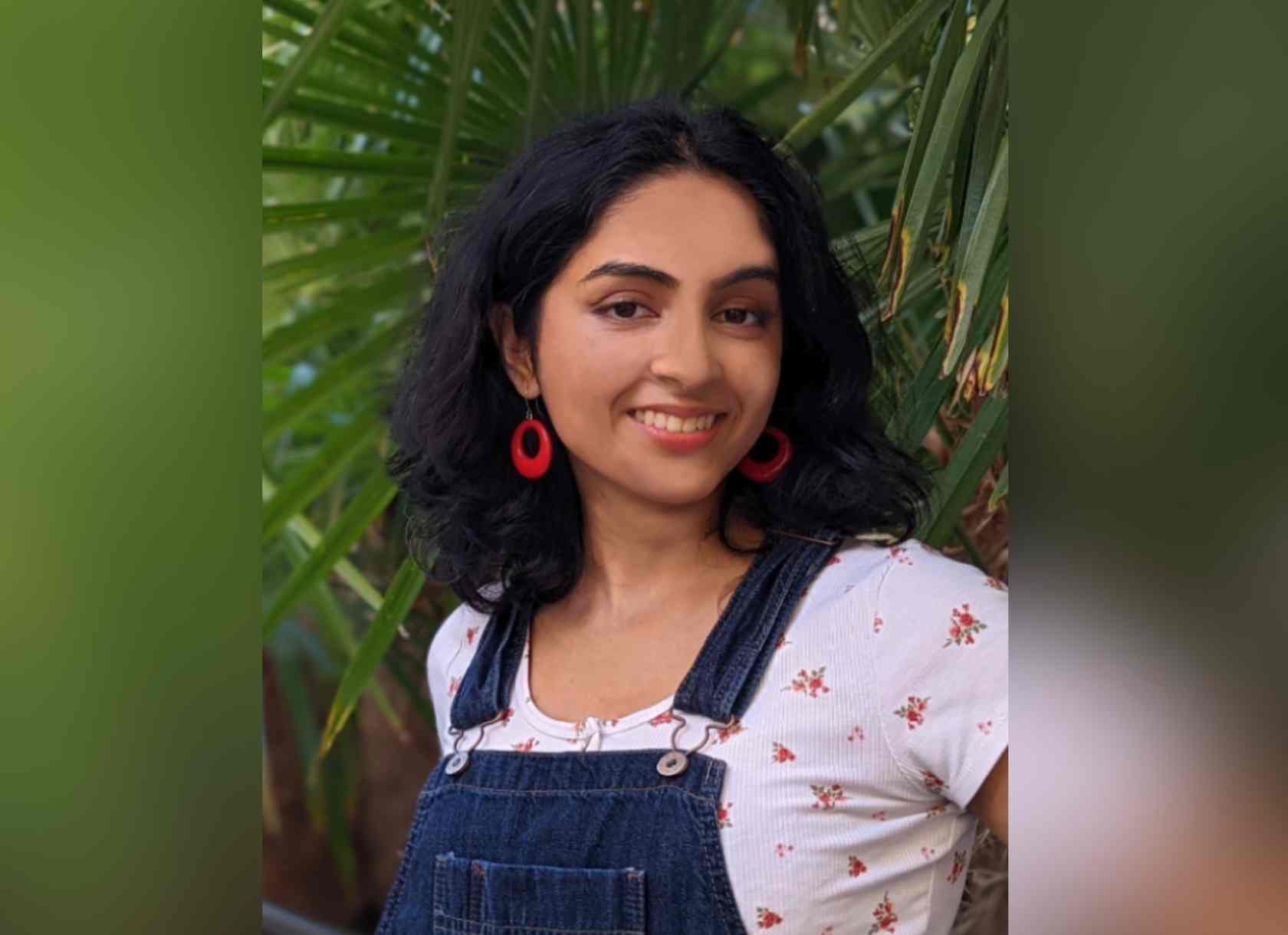By Katie Hanson ’25

Preethi Rao ’24 was drawn to the biology major with a pre-med track for many reasons: She loved the genetics elective she took at the W.M. Keck Science Department and felt energized by being in labs with other women. Most of all, she wanted to give back in some way—and producing a public health-focused podcast was the starting point,
“I wanted to make a podcast directed towards younger people, but also for everyone; something that would make health more fun to discuss,” Rao says. “Health has a huge impact on pretty much every area of a person’s life, and it’s fundamentally something everyone should be able to understand and access. Any disparities are really important for us to fix, and I definitely see myself being a part of that.”
This summer, Rao received a We Act Grant from the Laspa Center for Leadership. The grant provides students with funding for self-designed, innovative projects to build community, enabling Rao to finally develop her podcast, Spilling Tea on Public Health.
The idea started over the pandemic when she noticed how susceptible people were to online misinformation about developing vaccines. Shortly after, she met her best friend, Rossana Leal CMC ’24, in a first-year biology class on Zoom. The two instantly connected over their shared love of biology, and this summer they became podcast co-hosts, working together to research public health issues, draft scripts, record content, and edit everything down into under-an-hour long episodes.
The first season covered everything from the overturning of Roe v. Wade to diet culture. In only three months, the pair has already produced 11 informative episodes. Rao’s favorite is the three-episode mini-series on sex education.
Both Rao and Leal describe their high school sex education courses as lackluster. With their mini-series, they hoped to offer young people a more comprehensive understanding. They prompted their Instagram followers to anonymously submit related questions for a sex eduator to answer on the podcast. This topic was personal for Rao, as she hopes to pursue a career in reproductive health and draw attention to topics she feels are often brushed aside.
“There’s a lot that’s still not known about reproductive health, especially for people identifying as women. That is an area that I would really love to work in,” she says.
With each episode, Rao and Leal worked to humanize and personalize the topics, feeling that identities are an important aspect in all discussions of public health.
“We wanted to emphasize intersectionality instead of just being like, ‘Here are the facts about this public health topic,’” Rao says. “Since we both have very different backgrounds—she’s Chicana and I’m South Asian and the daughter of immigrants—we wanted to include stuff about these and other identities to the extent that we can.”
Rao says the rapid development of the podcast and growth of their audience wouldn’t be possible without the We Act Grant funding. The eight-week grant helped them run sponsored content on Instagram, buy high-quality podcasting microphones, and compensate their guests.
“The grant really did everything it promised in the sense of encouraging leadership development, and everyone at the Laspa Center was so supportive throughout the application process,” Rao says. “They were so excited about this project that it gave us that confidence we needed to believe this could be impactful for someone, even before we had any listeners or followers!”
With season two of the podcast approaching, Rao and Leal plan to expand. The duo is trying to meet their young audience where they are: on social media. This means producing content on their TikTok, as well as their Instagram. Regardless of future plans, Rao says she is proud of how far they’ve come.
“I really enjoyed seeing it grow,” Rao says. “At first I thought maybe this is too niche, but I loved how a lot of people were really into it and started some discourse. People would message us on Instagram, saying, ‘That’s such an interesting point. I love that part.’ That’s really what the goal of this was, so it’s really nice to see that it’s working out.”

